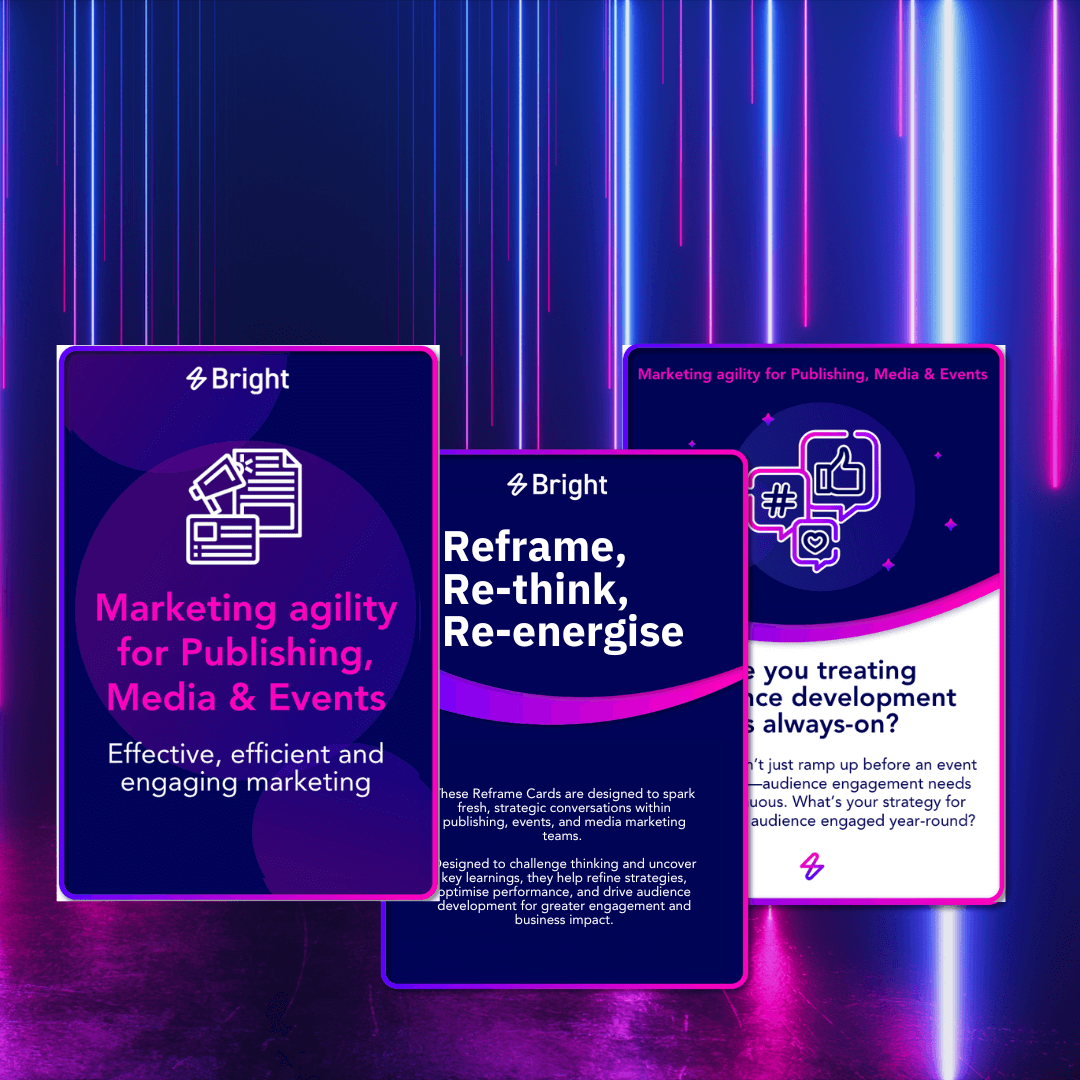B2B publishers and media firms are juggling events, content, subscriptions, and communities to grow audiences and keep them engaged year-round. But what’s actually driving results — and what’s just making more noise?
In this panel, senior marketing leaders who’ve been in the thick of it share real-world insights on what’s working (and what’s not). No fluffy theory — just practical strategies for building connected audience experiences across events and media.
We explore:
- Connecting events, content, and digital products to keep audiences coming back for more
- How to cut through the noise with compelling narratives and storytelling that turn audiences into engaged communities
- What works (and what doesn’t) and how to craft content that actually resonates
- Practical ways to test, learn, and adapt faster (without burning out your team)
- How leading B2B publishers are transforming unknown audiences into loyal, engaged communities
There’s candid, experience-backed insights — plus actionable ideas you can implement right away to sharpen your audience strategy and make your marketing more effective.
Meet the panel
Chelsey Lang
Head of Brand, Content & Community Marketing
Informa Markets, Dubai, UAE
Chelsey is passionate about the way storytelling and data work together to drive action and craft profitable user journeys. She specialises in bringing content marketing into the events marketing sphere, leading on brand building, audience growth and community development across global event portfolios.

Dasha Dollar-Smirnova
Founder,
Frog Talk
Dasha Dollar-Smirnova is a seasoned storyteller and the founder of Frog Talk, a communication and public speaking training company, where she empowers individuals to harness the power of their narratives for greater confidence and impact.
She has developed a unique methodology that blends her background in performing arts as an actress, years in the advertising industry, and her Master of Science in Psychology and Neuroscience of Mental Health.
Having shaped brand communications across multiple channels and markets for global giants like Apple, Nike, and Starbucks, she understands how to craft messages that cut through and connect.
Now, she applies this expertise to coaching, helping individuals and teams communicate with authenticity, clarity, and influence.
Zoë Merchant
Managing Director,
Bright
Zoe Merchant is the founder and managing director of Bright, a strategic B2B marketing consultancy that gives marketers the power to do great work and deliver business results. With over 20 years of experience in agile marketing, she helps clients reinvent their marketing operations, align with business goals, and deliver tangible value.
As a leader and innovator in her field, Zoe has been recognised as a top 10 women leader of 2020, a 3x #40overforty advertising and marketing leader, and a #CannesLions70 Creative B2B juror in 2023. She is also a certified Agility in Marketing professional.
Zoe is passionate about investing and reinventing marketing teams, promoting diversity and inclusion, and championing marketing’s role in business transformation.







